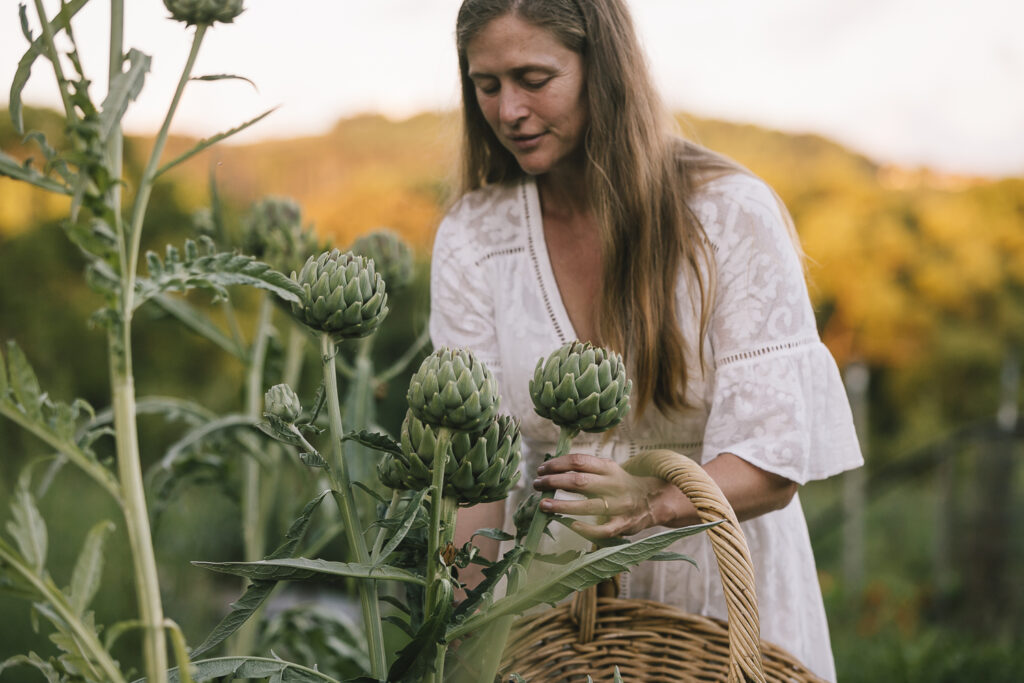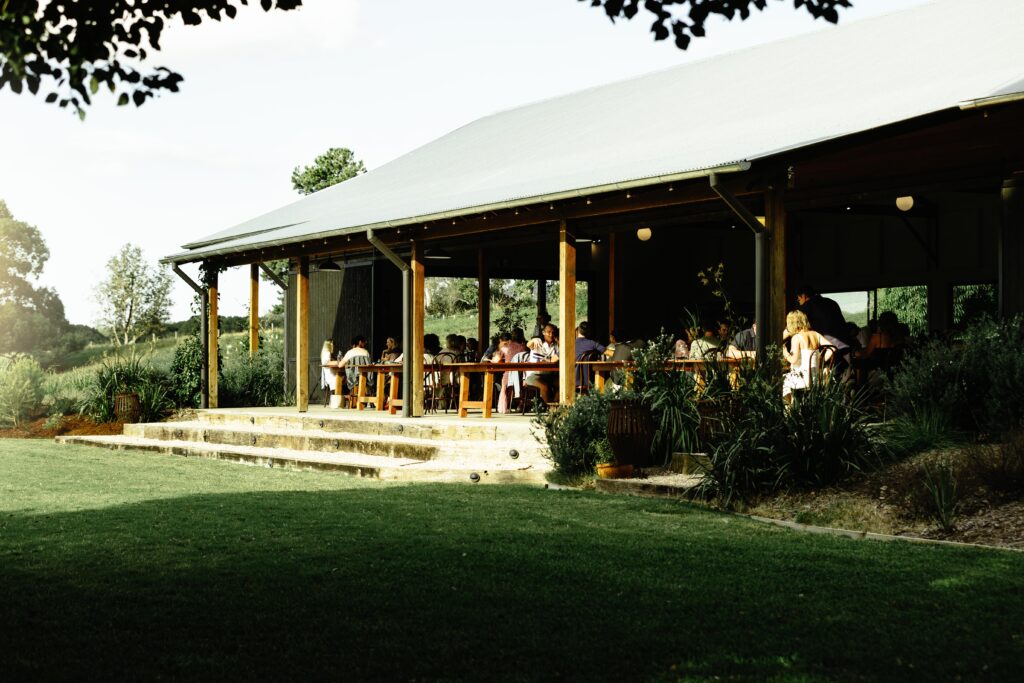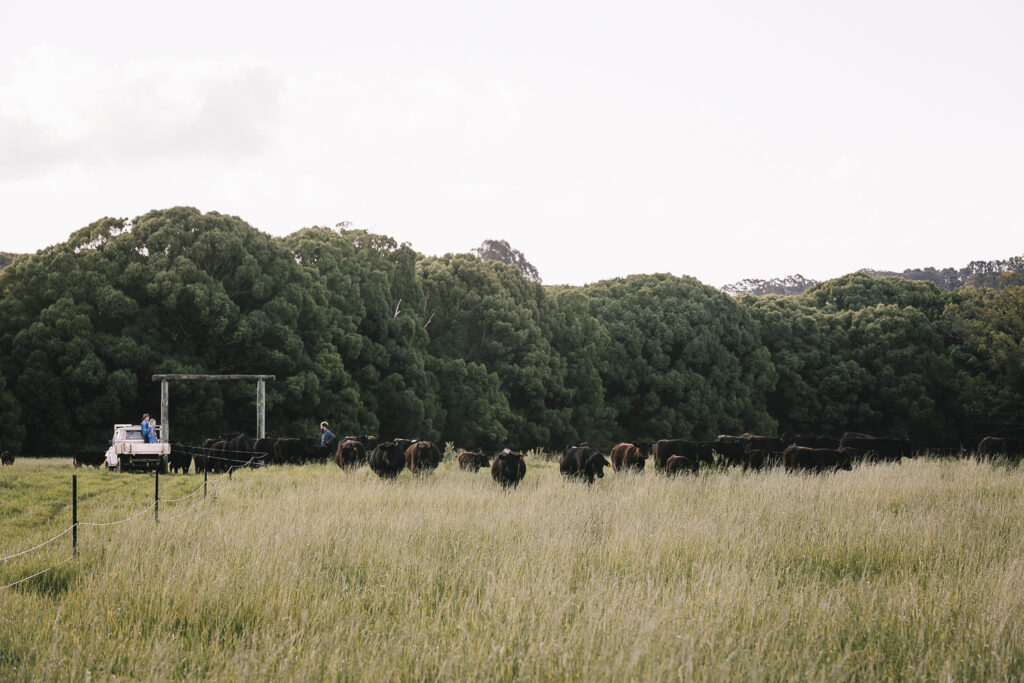Nestled on 120 acres in the picturesque Byron Bay Hinterland is a true paddock-to-plate eatery, delightfully named Frida’s Field. There you will find a blank canvas in the process of being transformed into a productive farm that grows an abundant variety of foods using regenerative techniques.
The owners, Edward Rawlings and Jeanie Wylie wanted to share this produce and ethos with others, so they hold long lunches several times a week, operate farm tours and a market garden.
Just how much she loves the tree-change has surprised Jeanie Wylie herself, having grown up in Brisbane.
Her happy place these days is the veggie garden and she’s creating something very special among those garden beds.
Cooking, travelling and eating
“Both Edward and I have always loved cooking, so when we met at university, we spent a lot of time cooking. Then, we did a lot of travel which involved a lot of eating,” she shares.
They took that love of food to the next level when they decided to grow it for themselves, on a farm. They moved to the country to test the waters, built a moveable house and bought some pigs, one of them named Frida.

They were the ingredients required to determine if farm life would be something they could do permanently. It turns out it was, so they brought the house they built with them plus two children they had added to the family in the meantime and moved to the Byron Bay Hinterland.
The name Frida’s Field symbolises Jeanie and Edward following their dreams. The land she says, is a blank canvas.
It’s slow going. It feels like a lifetime project.
They have already done so much, growing vegetables, spices and wagu beef with plans to introduce bush tucker and fruit trees. “Everything I produce is used in the restaurant.”
That may be in the lunch menus for the restaurant or in the farm shop where customers can purchase preserves.
“Our chef is absolutely awesome at just working with what we have,” Jeanie explains.

Circular and sustainable
Having a restaurant though, comes with the problem of food scraps like celery tops. Those waste products are composted and used back in the garden.
Anyone intrigued by these long lunches is welcome to come along on Fridays, Saturdays and Sundays for a four-hour lunch in an architecturally designed barn overlooking the paddocks and tree-lined river.
We have one sitting per day. It’s a set menu feast. So, it’s a lot of food. Come hungry!
“There are three entrees, a main with three sides and dessert. Our team will treat you like family.”
Jeanie acknowledges it’s been hard work but the freedom of this way of life stands out as the highlight. “You have to be really self motivated which is one of the challenges but also one of the joys. It’s all up to me to make it happen,” she says.
There’s no one telling you what to do. I don’t need to be anywhere at a certain time, except dropping the kids to the bus!

Jeanie has certainly embraced a slower-living mentality and now finds visiting the city quite overwhelming. “The hectic pace, the colours and the messages that you get pumped with in the city.”
New appreciation for food and farming
It has given her an appreciation for wide open spaces but also for food. The time and energy it takes to grow has come as a shock.
“How challenging it is to grow in quantities. Thinking about how many people there are in the world and how that food gets to those people.
“I just have a deeper understanding of why mass food production systems are the way they are. My understanding of how we could possibly change that has become more nuanced.”
It’s hard to grow a lot food!
For now, the focus is on her own patch of land, to build a business and a farming system that could out-live her. “A business that is self-sustaining so when I get old and decrepit, it can keep going!” she laughs.
Here’s to Frida’s Field becoming a place for long lunches for many years to come.
Hear more stories like this by subscribing to the (or wherever you listen to podcasts) and follow podcast host Angie Asimus on for more updates.








